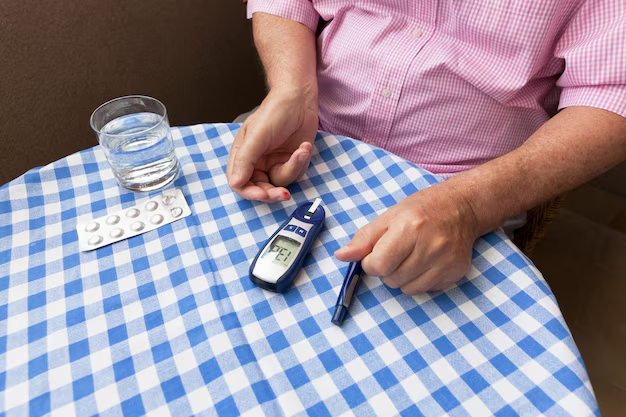Your Guide to Can Diabetics Drink Alcohol
What You Get:
Free Guide
Free, helpful information about Diabetes FAQ and related Can Diabetics Drink Alcohol topics.
Helpful Information
Get clear and easy-to-understand details about Can Diabetics Drink Alcohol topics and resources.
Personalized Offers
Answer a few optional questions to receive offers or information related to Diabetes FAQ. The survey is optional and not required to access your free guide.
Is It Safe for Diabetics to Drink Alcohol? Here's What You Need to Know
For many, enjoying a cocktail with friends or a glass of wine at dinner is a cherished pleasure. But if you have diabetes, such straightforward decisions can become complex calculations. You may find yourself wondering, can diabetics drink alcohol? Let's explore the considerations and ways to manage this.
Understanding Alcohol's Impact on Diabetes
Alcohol consumption poses unique challenges for diabetics due to its ability to influence blood sugar levels. This occurs because alcohol can initially increase your blood sugar, but once your liver starts working to process alcohol, this can inhibit glucose release, potentially causing your blood sugar levels to drop. This dual effect places diabetics at risk of hypoglycemia, especially if they drink on an empty stomach.
Considerations for Safe Alcohol Consumption
If you have diabetes and choose to drink alcohol, you must do so mindfully:
Consult Your Doctor: Always discuss with your healthcare provider before adding alcohol into your diet. They can provide personalized advice based on your health status.
Monitor Blood Sugar Levels: Check your blood sugar before drinking, during consumption, and after. This will help manage immediate effects and adjust your dietary intake accordingly.
Never Drink on an Empty Stomach: Eating food with alcohol can help maintain stable blood sugar levels. Opt for high-fiber and protein-rich foods which slowly release glucose.
Understand Your Limits: Stay within moderate drinking guidelines—up to one drink per day for women and two for men.
Choose Wisely: Stick with low-sugar drinks. Light beer, dry wines, and spirits mixed with sugar-free counterparts are better options.
Identify Symptoms: Be aware of the symptoms of hypoglycemia, such as dizziness, confusion, and sweating. Alcohol can mask these, complicating timely intervention.
Beyond Alcohol: Financing Your Health
Navigating health challenges like diabetes often extends beyond daily dietary decisions. For many, managing the financial burden of medication, supplies, and lifestyle changes is equally crucial. Here's how you can explore financial assistance when living with diabetes:
Government Support Programs: Investigate Medicare's various plans or Medicaid options if you qualify. They often cover diabetes supplies and services.
Nonprofit Organizations: Groups like the American Diabetes Association may offer resources for financial aid or discounted programs.
Health Savings Accounts (HSA): These can be beneficial in managing out-of-pocket medical expenses while offering tax advantages.
Prescription Assistance Programs: Pharmaceutical companies often provide medications at reduced prices or even free through certain programs.
Balancing a diabetic lifestyle with occasional alcohol consumption is possible when done with caution and careful planning. As you evaluate your lifestyle choices, consider the larger financial picture, ensuring your medical needs are supported without undue financial stress.
Financial Assistance Resources for Diabetics 💰
- 💳 Medicare & Medicaid: Government programs offering coverage for medications, supplies, and health services.
- 🏥 Prescription Assistance Programs: Discounts or free medication offerings from pharmaceutical companies.
- 💡 Health Savings Account (HSA): A tax-advantaged account for managing medical expenses.
- 🔍 Nonprofit Resources: American Diabetes Association and similar entities offering educational and financial support.
- 🏛️ Educational Grants & Scholarships: For those pursuing careers in healthcare while managing diabetes.
By making informed choices, managing your finances, and leveraging support systems, you can maintain a healthier lifestyle with diabetes, enjoying life's pleasures responsibly.
What You Get:
Free Diabetes FAQ Guide
Free, helpful information about Can Diabetics Drink Alcohol and related resources.

Helpful Information
Get clear, easy-to-understand details about Can Diabetics Drink Alcohol topics.

Optional Personalized Offers
Answer a few optional questions to see offers or information related to Diabetes FAQ. Participation is not required to get your free guide.


